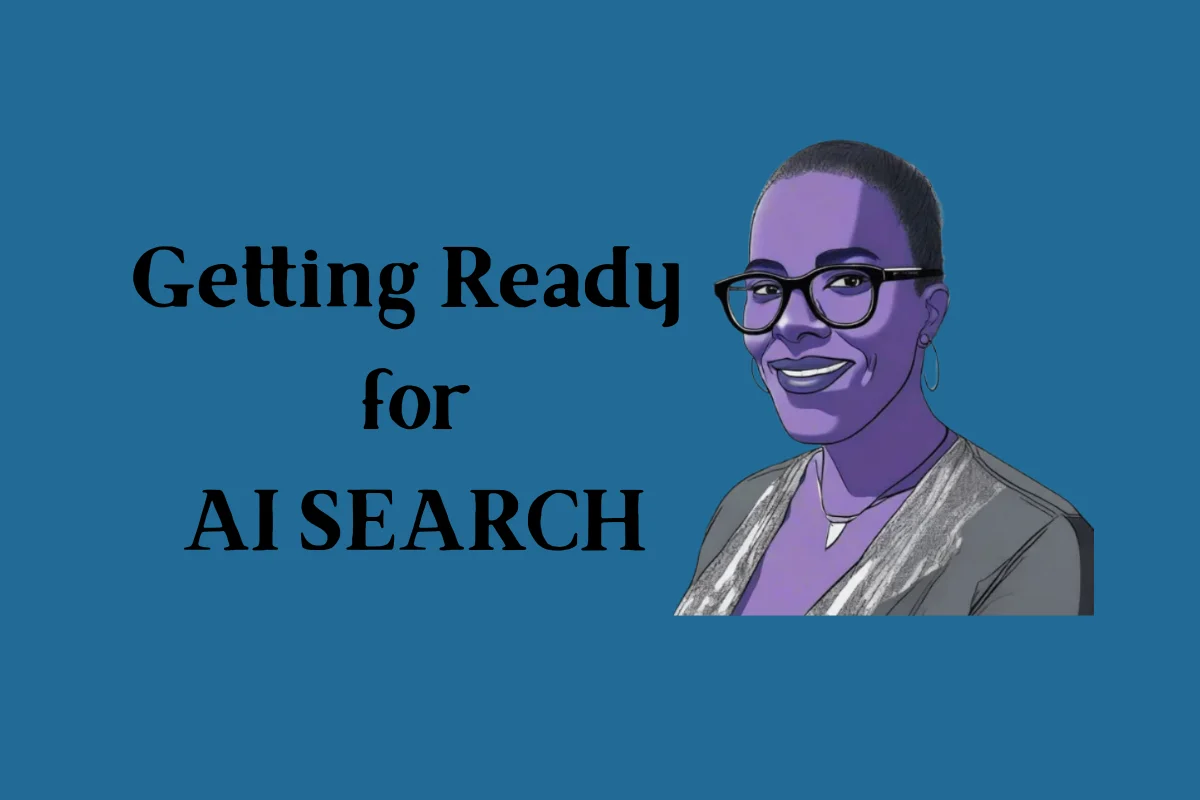If you run a local business like a café, gym, salon, or dentist, you probably rely more on foot traffic than clicks. So here’s the question: does getting your website “AI search ready” even matter?
The short answer is yes, more than ever.
That’s because when someone asks Google SGE, Bing Copilot, or even ChatGPT, “best coffee near me” or “where can I get a haircut in Liverpool,” the answers aren’t plucked from thin air. They come from structured local data. The kind you share and control.
Why AI Search Matters for Local Businesses
Search has shifted. Instead of typing into a search engine and browsing ten links, people now ask AI-powered assistants:
“Is there a gym near me with childcare?”
“What’s the best nail salon open on Sundays?”
“Where can I get a healthy lunch in Warwickshire city centre?”
AI doesn’t list dozens of options. It gives a handful. If your business isn’t set up correctly, you don’t even make the cut.
The truth is: local visibility is no longer just about maps, it’s about AI pulling you as the answer.
Step 1: Optimise Your Google Business Profile
Your Google Business Profile is the single most important asset for AI visibility. Keep it updated with:
- Accurate opening hours.
- Services and menu items (yes, cafés and salons can list these directly).
- Photos that show your space.
- Posts and offers (these give AI “fresh” data).
Pro tip: encourage reviews with keywords. A customer who writes, “Best gluten-free café in Liverpool” helps AI connect your business to that query.
Step 2: Add LocalBusiness Schema
Schema markup isn’t just for big companies. A simple LocalBusiness schema tells search engines your exact location, services, and opening hours.
Example: A salon can add schema with:
- Business name.
- Address and postcode.
- Price range.
- Services (haircut, colouring, extensions).
This makes your website machine-readable. When someone searches “hairdresser Warwickshire open late,” AI knows you fit the bill.
Step 3: Build Location-Based FAQs
Local customers always ask the same things:
“Do you take walk-ins?”
“Is there parking nearby?”
“Do you offer evening appointments?”
Write 3–5 FAQs with 60–100 word answers. Place them on your website service pages and cluster pages. Then add FAQ schema. This increases your chance of being surfaced directly in AI search results.
Step 4: Focus on NAP Consistency
NAP = Name, Address, Phone number.
Make sure your business details are exactly the same on:
- Your website.
- Google Business Profile.
- Social media.
- Local directories.
Inconsistent details confuse AI and reduce trust. A small mismatch (“St. vs Street”) can sometimes push you out of results.
Quick Checklist for Local AI Search Readiness
- Google Business Profile updated and optimised.
- LocalBusiness schema added to key pages.
- Reviews requested regularly with keyword-rich descriptions.
- Service pages include local FAQs with schema.
- NAP details are consistent everywhere online.
FAQs About Local AI Search
Q: I’m a local business does getting AI ready apply to me?
A: Absolutely. AI doesn’t just surface global information; it also pulls from local sources. If someone asks Google or Bing “best hairdresser near me,” the results often come from local businesses that have structured their data correctly. By adding LocalBusiness schema, optimising your Google Business Profile, and including location-based FAQs, you make sure AI knows you’re a relevant, nearby option. Even if you rely mainly on foot traffic, AI readiness helps more people find you in their neighbourhood.
Q: What’s the easiest way for a local business to show up in AI search?
A: Start with your Google Business Profile. Make sure your opening hours, phone number, and address are up to date and match your website (this is called NAP consistency). Next, encourage customers to leave reviews — AI often highlights businesses with strong, recent feedback. Finally, add LocalBusiness schema to your website so machines can confirm who you are and where you’re located. These three simple steps boost your chance of being featured in local AI results.
Q: Do local businesses need FAQ pages too?
A: Yes. Local customers often ask the same questions: “Do you take walk-ins?” “Is parking available?” “Do you offer evening appointments?” Adding these FAQs directly to your service pages makes it easy for both people and AI tools to find the answers. Use 60–100 word responses in plain English, then add FAQ schema markup. This way, AI assistants can surface your business as the answer when people ask those exact questions in voice search or chatbots.
Final Word
Local businesses can’t afford to ignore AI search because it focuses on making sure you show up when customers nearby ask questions. Whether you run a café, gym, or salon, AI search readiness helps you capture both foot traffic and online trust.
Want to shortcut the process? Grab the Local Business AI Search Checklist PDF in the shop or let me optimise your site so you show up when people in your area are searching.
Visit My Cluster Pages
Get Your Website Ready for AI Search
Thanks for sharing:

